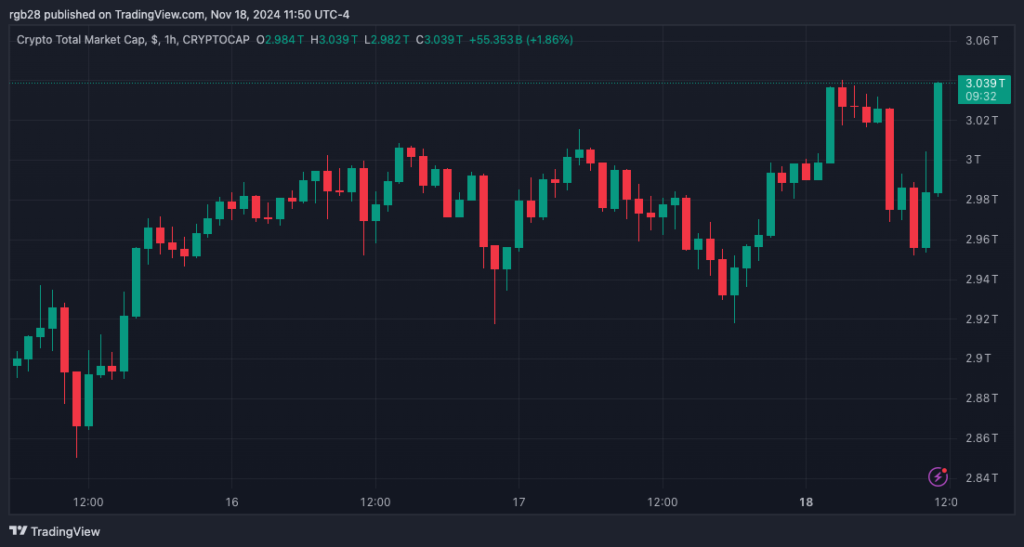Taiwan pledges to revise crypto tax laws amid market surge, addressing tax evasion challenges tied to digital assets and territorial income principles.
Taiwanese financial officials promised to revise tax laws to address the nation’s cryptocurrency tax evasion problem during the market’s bull run. However, local publications pointed out that the regulators may encounter challenges in putting in place a successful tax system pertaining to digital assets.
Authorities in Taiwan Will Examine Tax Laws
In light of the current market surge, Taiwan’s Ministry of Finance promised to review the tax laws about cryptocurrency gains on Monday. Finance Minister Chuang Tsui-yun allegedly acknowledged during a legislative session that the ministry still needs to implement a system that efficiently collects taxes from individuals tied to digital assets.
Lai Shyh-bao, a Kuomintang politician, questioned the existing rules. According to Lai, since cryptocurrencies are regarded as digital assets in the nation, investors who profit from their trading shouldn’t be excused from paying income taxes.
According to Sung Hsiu-ling, Taiwan’s Director-General of the Taxation Administration, investors must file income taxes appropriately. Lai, however, refuted this assertion, arguing that if authority examines their cryptocurrency tax returns, Taiwanese investors will feel free to submit them.
The National Taxation Bureau of Taipei’s director-general, Wu Lien-Ying, stated at the hearing that 26 cryptocurrency exchanges that have received anti-money laundering licenses from Taiwan’s Financial Supervisory Commission (FSC) are subject to the current policy’s collection of business and corporate income taxes.
Wu “struggled to provide clearer details of how income taxes are collected from investors trading in these platforms,” according to a report by Focus Taiwan CNA. Wu and Sung also disclosed that the FSC is working on a new tax law about digital assets, but they have yet to provide any other information.
Recent FSC regulatory framework changes mandate that cryptocurrency trading platforms conduct more stringent due diligence. Exchanges must implement safeguards against illegal trading and keep a careful eye on the listing and delisting of cryptocurrencies, according to Bitcoinist.
A Novel Crypto Tax Structure May Face Obstacles
To “better enable the government to tax cryptocurrency gains,” Chuang and Sung promised to evaluate the current framework within the next three months, according to the newspaper. However, Focus Taiwan was informed by a crypto-savvy legal expert that the financial authorities may face difficulties due to the present tax legislation.
Because it adheres to the territoriality principle, individual income tax is exclusively levied on income earned within Taiwan. This implies that benefits from the irregular trading of digital assets within the nation’s borders will be classified as “income from property transactions” for investors.
Therefore, The territoriality principle may make it more challenging to enforce stringent tax laws on cryptocurrency transactions because traders on foreign exchanges may avoid scrutiny if their gains stay below the $230,000 threshold for taxable overseas income established for the fiscal year 2024.
As far as I know, the Finance Ministry can only monitor the currency flow of bank accounts used for transactions, similar to how it monitors stock trades. Taxes can easily be evaded by disguising the transactions as overseas activity conducted in U.S. dollars.
In the end, Taiwan’s source recommended changing these rules to combat tax evasion and successfully collect cryptocurrency taxes from Taiwanese investors.




